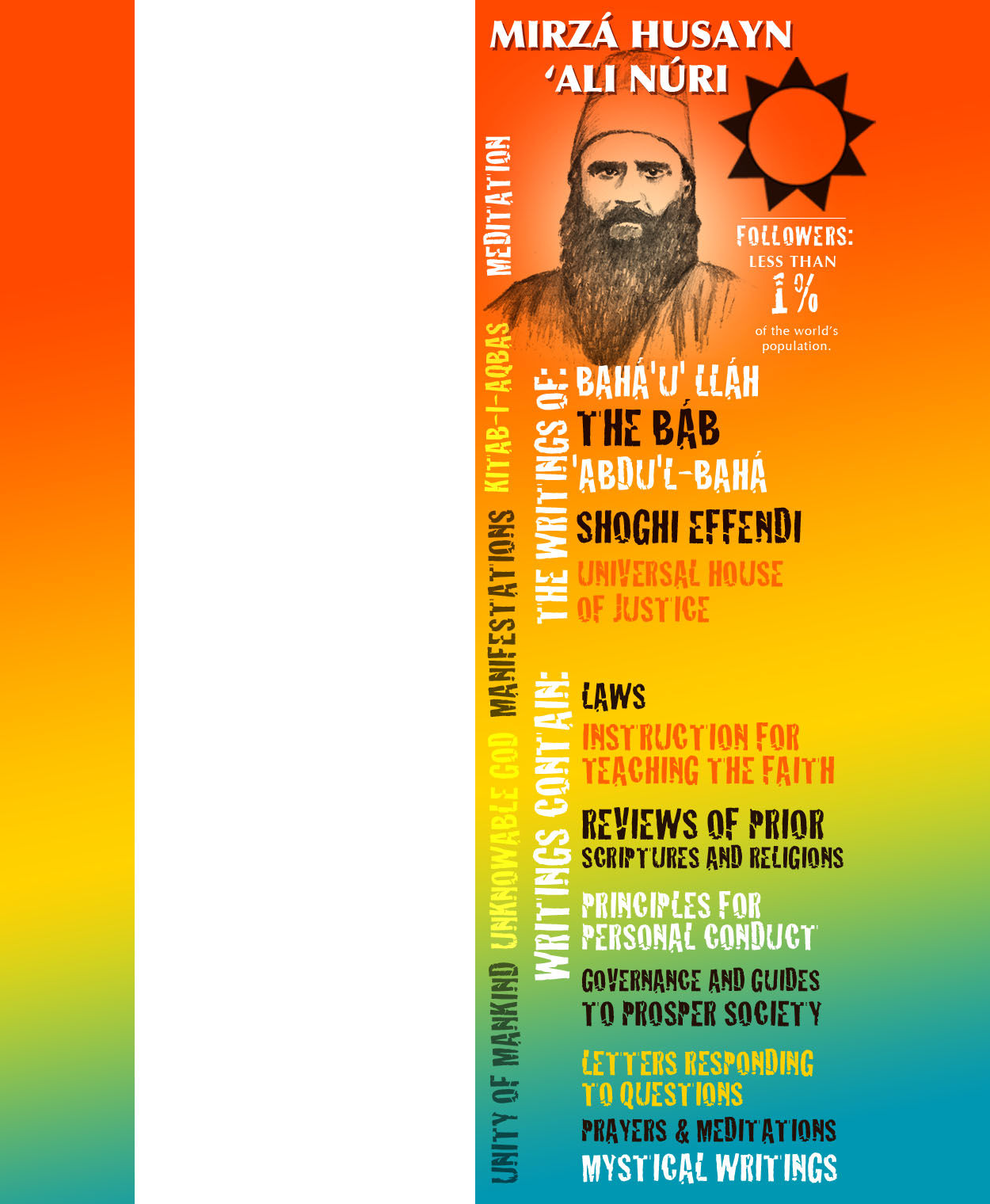

Bahá'í World Faith
Bahá'u'lláh
(Mirzá Husayn 'Ali Núri) (1817-1892)
"The earth is but one country and Mankind its citizens."
Bahá'u'lláh (Mírza Husayn ‘Alí) was a member of the Shi'ite branch of Islam. He aligned himself with the Báb (Mirza 'Ali Mohammad), the head of a Muslim sect that claimed to have special knowledge of the final truth. He claimed that a new messenger of God would come and overturn old beliefs. The Báb was executed for treason in 1850, and Mírza Husayn and his half-brother took over the movement. After his half-brother was discredited, Mírza Husayn was exiled by Sunni Muslims. Later, he publicly declared himself to be the latest manifestation of God that the Báb had predicted. Violence resulted and the government banished him. He expanded the Báb's original Bahá'í doctrine into a teaching that promoted the unity of all religions and all races of humanity. In 1892, he contracted a fever that took his life. Before he died, he appointed his eldest son to be the interpreter of his teachings.
BAHÁ'Í WORLD FAITH: A religion founded in Iran in 1863 by Husayn ‘Alí (called Bahá'u'lláh) teaching the essential worth of all religions, the unity of all peoples, and the equality of the sexes.
Followers of Bahá'í World Faith: Less than 1% of the world's population (note).
Authoritative Text: The writings of:
• Bahá'u' lláh
• The Báb
• 'Abdu'l-Bahá: Bahá'u' lláh's eldest son
• Shoghi Effendi: 'Abdu'l-Bahá's appointed Guardian of the Bahá'í faith
• Messages of the Universal House of Justice
*Bahá'ís also recognize the sacred texts of other world religions.
The writings contain:
• Laws
• Instruction for teaching the faith
• Reviews of prior scriptures and religions
• Principles for personal conduct
• Governance and guides to prosper society
• Letters responding to questions
• Prayers and meditations
• Mystical writings